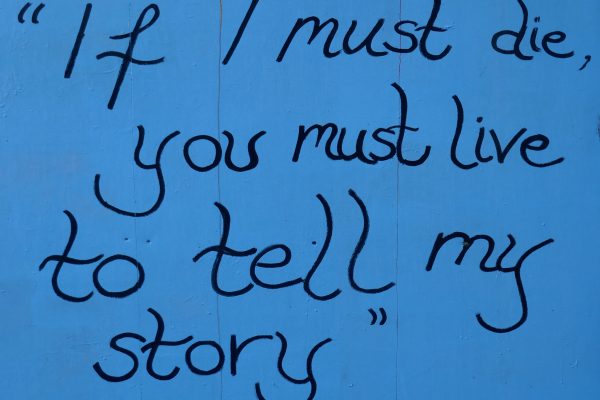With merely two hundred years of fossil fuel use, we have done enough damage to the earth to be facing our own extinction. Our only hope is to embrace our identity as one humanity. And we can only secure a future by recognizing that we are part of the earth—not separate from the earth, and not her masters.
The undeniable power of man is apparent in the destruction that we have caused in such a short period. When our age is called the Anthropocene, it is in reference to the power of man to disrupt the Earth’s ecological processes. But it would be arrogant and irresponsible to claim that this power to destroy should give some humans the right to control the earth’s resources, processes, and systems to the detriment of other human and nonhuman living beings and systems. Prakriti (Sanskrit for “nature”) is more than a human construct or an object to be manipulated for the short-term benefit of some humans. She is the creative force of the universe.
Most nonindustrial cultures have viewed the earth as living, as Mother Earth. James Lovelock called her Gaia, after the ancient Greek earth goddess, when he realized that the earth creates the conditions for life through her self-organization and self-regulation. We are alive today because the earth allows it. To be aware that we are alive because our beautiful earth is alive—and that we therefore have a duty to protect her ecosystems and diverse species—is to live in the Ecocene.
The Ecocene is informed by the increasing awareness among humans of the ecological processes of the earth that shape and sustain life. We are part of the earth community. We are earth citizens. The earth has rights, and we have a duty to care for the earth, all her beings, and our fellow humans. The Ecocene asks us to correct and transcend the mistakes, false assumptions, and limitations that have brought us to the precipice of ecological collapse.
I consciously avoid calling our age the Anthropocene. The anthropocentric worldview is the cause of so much of the ecological destruction in our time. To continue to put humans at the center is to perpetuate the hubris at the root of the ecological destruction of the earth—and, with it, our own future. As Einstein said, you cannot solve a problem with the same mindset that caused it. The democratic Anthropocene Purdy proposes is insufficiently democratic because it leaves out the earth’s rights and the rights of nonhuman species as equal members of the earth family. What we need is earth democracy—the democracy of all life on earth.
Purdy’s democratic Anthropocene also ignores the worldview of many non-Western cultures. Anthropocentrism goes hand in hand with ethnocentrism and the paradigms that emerged in the West with the rise of colonialism, industrialism, and capitalism. The idea that the world should be remade to fulfill our needs is not new: it has its roots in the ancient Roman concept of “Terra Nullius,” which negated the personhood and sovereignty of non-Romans by declaring all land occupied by them free for the taking. This same concept was applied by modern Western colonial powers to the non-Western world and underwrote the slaughter, enslavement, and genocide of entire peoples. The papal bull of 1493, Inter caetera, divvied the Americas between Spain and Portugal on the assumption that the brown-skinned, non-Christian peoples living there had no rights that a white Christian was obligated to honor. In other words, we have been down this road before: when advocates for a global Anthropocene claim to speak on behalf of non-Westerners, it is mostly the case that they are instead speaking over non-Westerners.
But there are signs of hope. It is an indication of the sea change in our collective consciousness that Pope Francis, in his encyclical of 2015, communicates a very different worldview from Inter caetera. Laudato si’ opens with St. Francis’s “Canticle of the Creatures”: “Praise be to you, my Lord, through our Sister, Mother Earth, who sustains and governs us, and who produces various fruits with coloured flowers and herbs.” This resonates deeply with the Indian philosophy of Vasudhaiva Kutumbakam, which espouses that the earth is one family. It resonates with the contemporary movement for the rights of Mother Earth. It resonates with cultures and faiths across the world.





